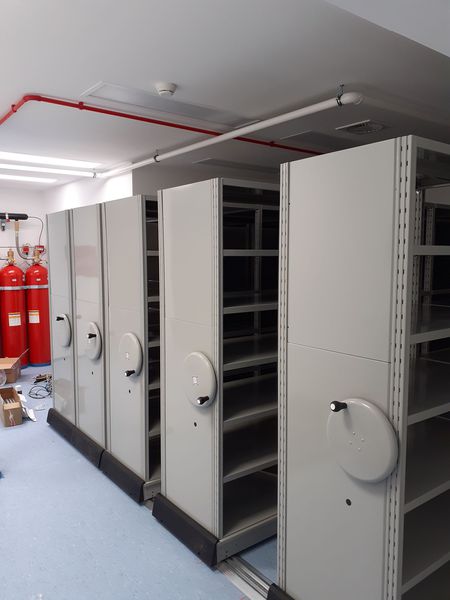Colleagues participate in a week-long training program as volunteer instructors for the Potočari Memorial Center.
June 9 is International Archives Day adopted by the International Council on Archives (ICA ) at the International Congress in Vienna in 2004. ICA strongly believes that “Archives and archivists play an important role in accountability, transparency, democracy, heritage, memory, and society.” This is the day to celebrate archives and the Blinken OSA joins in the celebration by offering support to the Potočari Memorial Center in the form of professional training.
Csaba Szilágyi, acting Chief Archivist of the Blinken OSA Archives has written a powerful blog post, titled Discussion About the 1995 Srebrenica Genocide Begins in the Archives.
In the closing paragraph of the article he writes “Since December 2019, on behalf Blinken OSA, I serve as a pro bono archives consultant for the Srebrenica-Potočari Memorial and Cemetery, assisting in designing and establishing a proper and long-needed archive and research center on the study of the 1995 Srebrenica genocide. Digital copies of some of the records listed above will be transferred to the PMC Archives.”
This ongoing consultancy work is now complemented by a week-long archival training program designed and carried out by the professional staff of the Blinken OSA, who will act as volunteer instructors during the online training. The training covers a wide range of topics that serve as the base for professional archival operation in a digital—and very much changed archival climate.
During the introductory phase of the training, lectures are given about the mandate of archives and the archival workflow: acquiring, appraisal, and accessioning, as well as about processing and digitization of textual materials. In an era rich in audiovisual materials, two sessions are dedicated to the caring and the handling of audiovisual materials such as photos, videos, and sound collections, with a special focus on memory institutions.
With digitization taking up the center stage in archives, along with the use of modern archival management systems, IT knowledge and service are essential, thus two sessions are designed to give training about the information systems in the archival workflow. The Srebrenica-Potočari Genocide Memorial Center’s future holdings are special, and a separate session deals with the notion of archiving documents on human rights violations and social justice.
Archival professionals dealing with sensitive materials are well aware that metadata can be political in case of records of violent past(s,) the role of archivist and archival intervention should be carefully considered. A whole session covers this during the training.
And last but not least, access to information, privacy, and legal matters in the archives will be addressed, as well as the library reference service and records management in the closing sessions of the training course.


